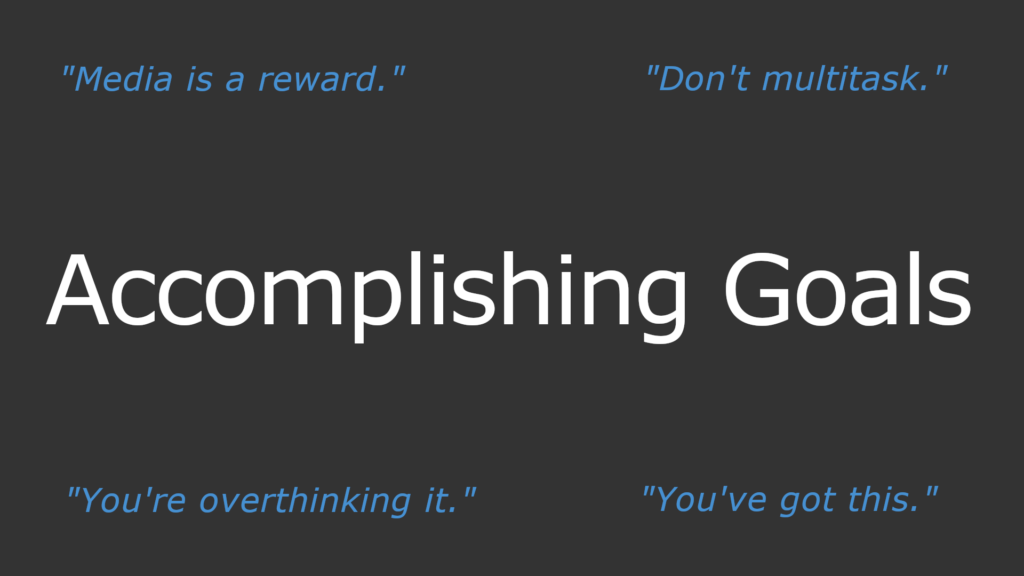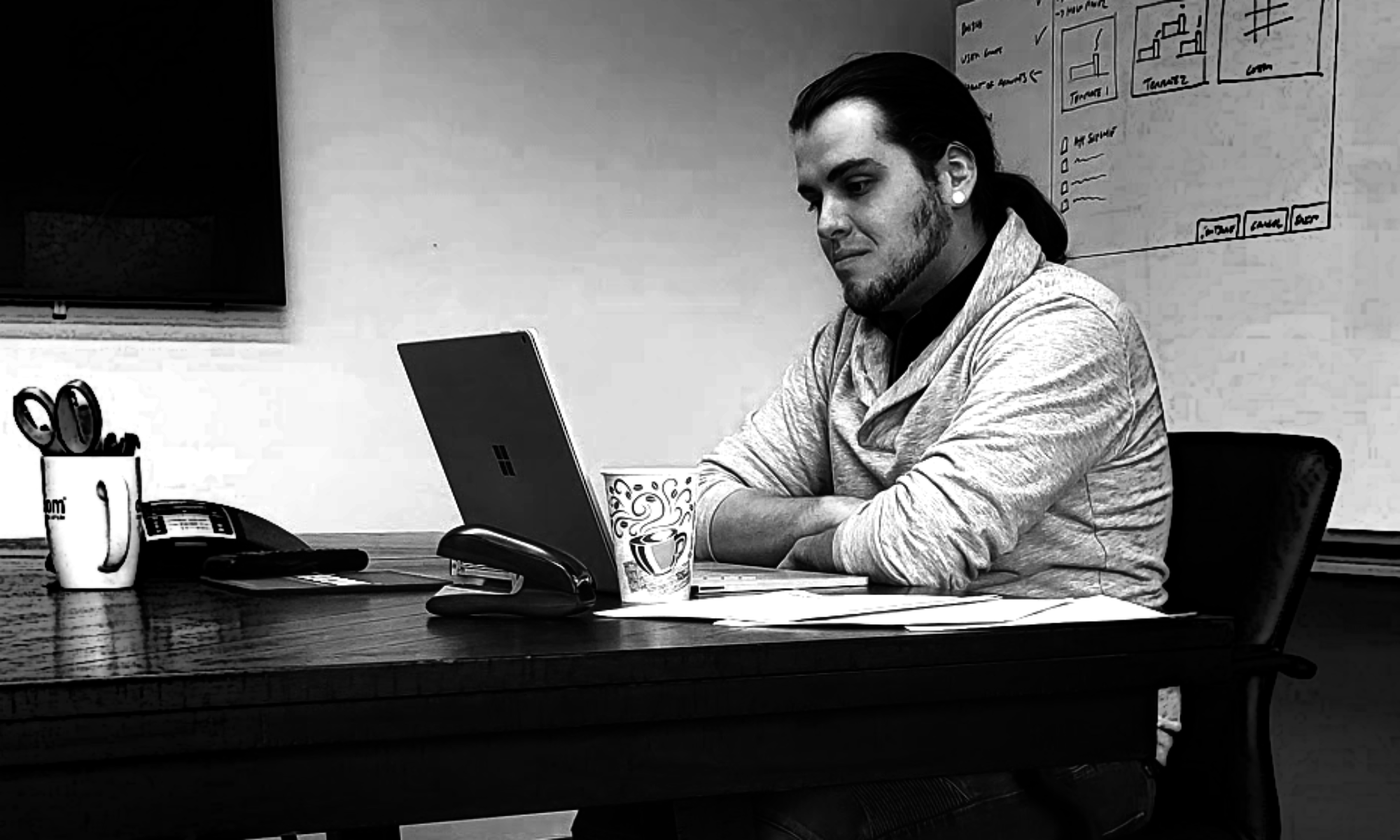
Life goals, they’re hard to achieve.. Right?
Everyone has goals. It could be improving health, buying a new house, getting that promotion, or starting a business. Goals and change carry a stigma of being difficult. Many struggle and fail to accomplish their goals. Many more fail to even start towards them.
I am personally very goal oriented. I’ve used my mentality to succeed at my job, expand my future potential, cease using tobacco products, lose substantial weight, start a regular exercise program, buy a home, etc. These all are completely unrelated things, except in the sense that they are goals and I attack all of these different goals with the same mindset.
These are some of the things I tell myself to keep myself on track.
“Media is a reward.” – Information overload. There’s so much content out there to consume between all of the different media channels, it can be hard to get enough of it! So much so that I routinely see people risking their lives messing around on their smart phones while hurdling down the highway at 80mph. That’s right, people love to consume media so much that it’s apparently worth risking life & limb for. Media is designed to be addicting, and it works.
One strategy I use to keep myself on track is simple — I don’t allow myself to consume more than I produce. If I want to spend an hour or two reading a book, watching a movie, or playing a game, I first make sure I put in at-least that amount of time up front on a proactive and productive activity. This has helped me procrastinate substantially less and has also cleared my thinking that is now more focused on achieving my goals and less focused on viewing others’ accomplishments.
“Don’t multitask.” – Multitasking skills can be valuable when you’re executing on the daily routine. Being able to cook while talking on the phone or fill out forms while waiting for a file to transfer is a useful skill to have, except when you’re trying to break the day to day. Accomplishing a goal means making meaningful life change, and that requires devoted attention. The goal is new, and any other existing activities that you try to pair with the goal in a multitasking fashion will be more appetizing to your brain than the (difficult) goal. Basically, stay focused!
“You’re overthinking it.” – Just do the thing. Whatever it is, just do it, and nothing more. It can be easy to get distracted by potentials that may never happen and other rabbit holes along the way, but what’s important is that you keep the goal simple. Don’t allow additional scope to creep into the goal. Scope creates doubt. You can always set additional goals to improve further after accomplishing what’s at hand, but trying to make something bigger than it needs to be will spawn a relentless cycle towards failure.
I’m in software, so my goals tend to be product oriented. When building anything, software especially, it’s very easy to play the ‘what if’ game. What if it did this, and had that, and could interact with this other app, etc. All of that is well and good, but if you never stand the basics up, there’s nothing to what-if about. You can always iterate, but you first must accomplish something.
“You’ve got this.” – The most important thing to tell yourself is that you’re capable. It can be easy to let doubt sink in when the challenges seem unsurpassable, but you just have to forge onward. I’m in the midst of watching my mother open her second restaurant. When I was a kid, I never thought I would see her doing what she’s currently accomplishing and has accomplished already. The amount of challenges that she’s faced along the way would have crushed most people, but she has the tenacity to keep the ball moving and that is the driver to her success.
In all, the important thing is just to keep a clear head. Limit your consumption of others’ accomplishments so you can focus on yours. Stay on track and don’t allow added scope to creep in. Most importantly, believe in yourself. Pair self-belief with dedicated time and success in your goals will follow suit.
